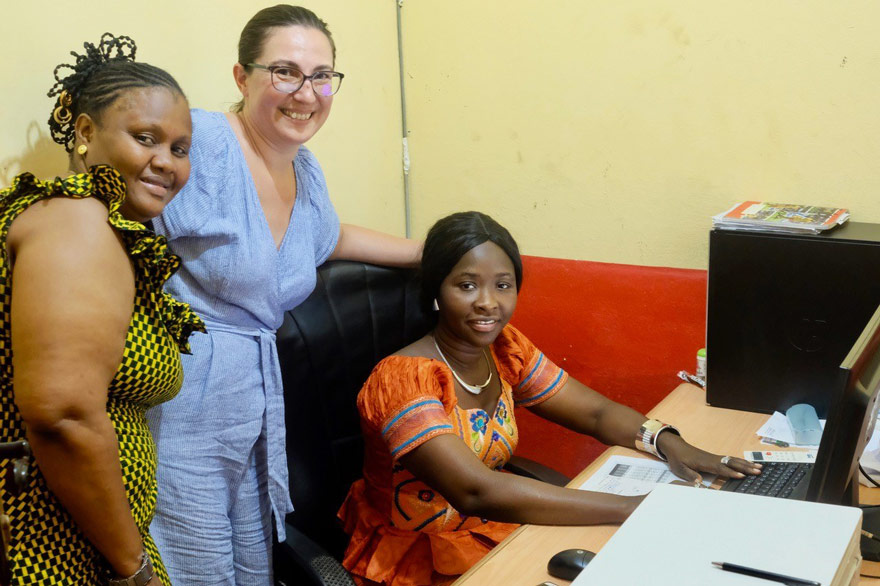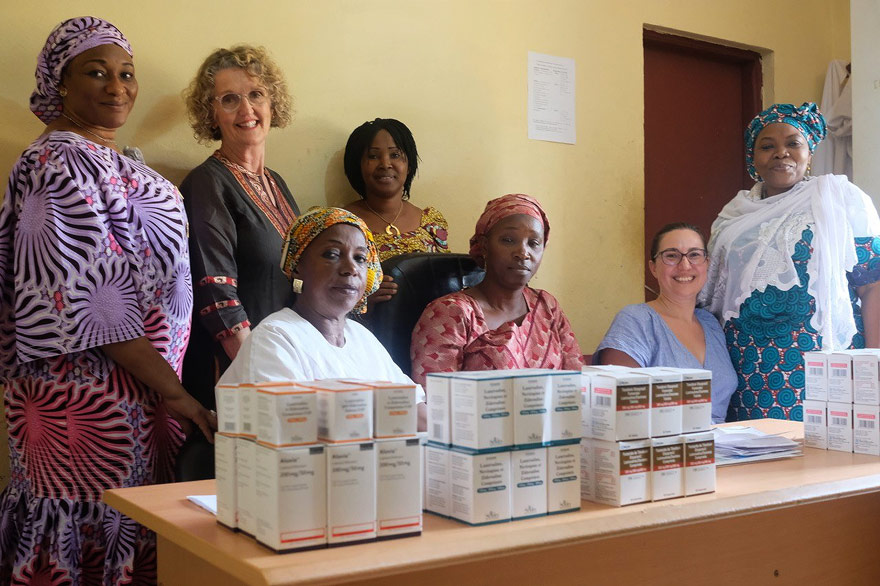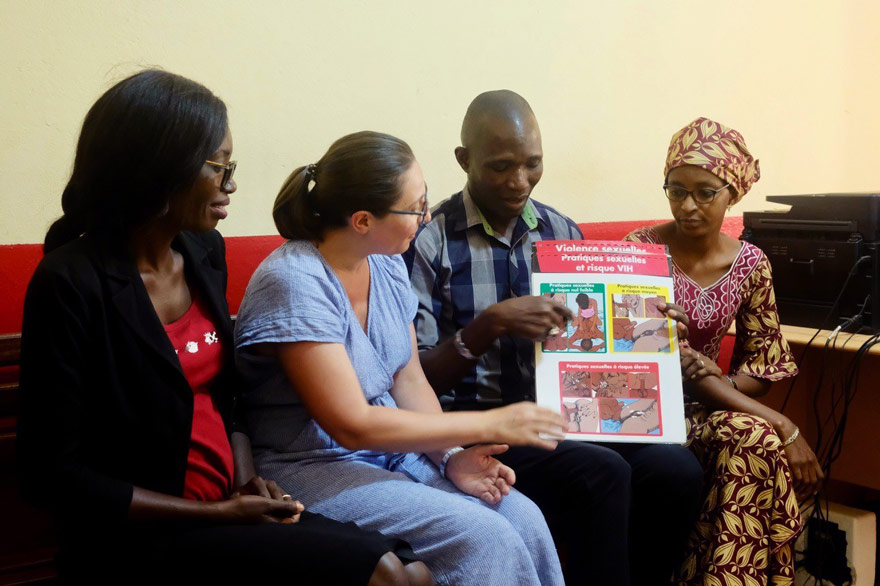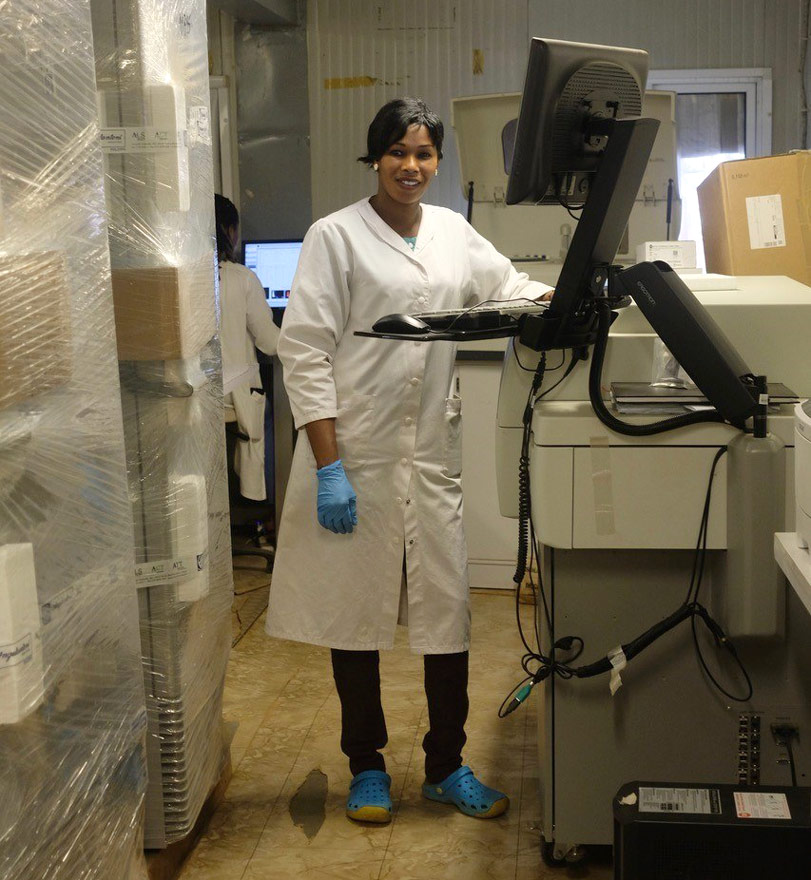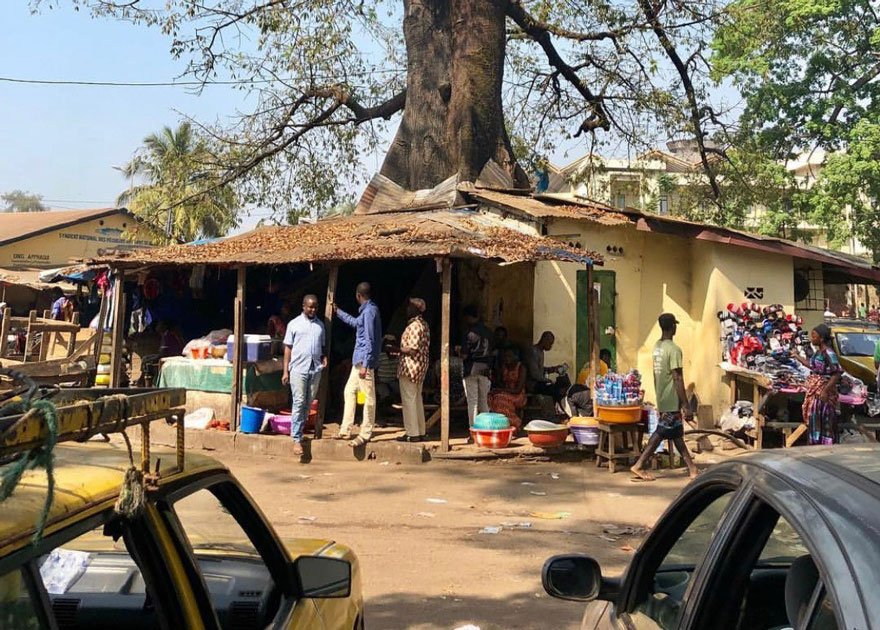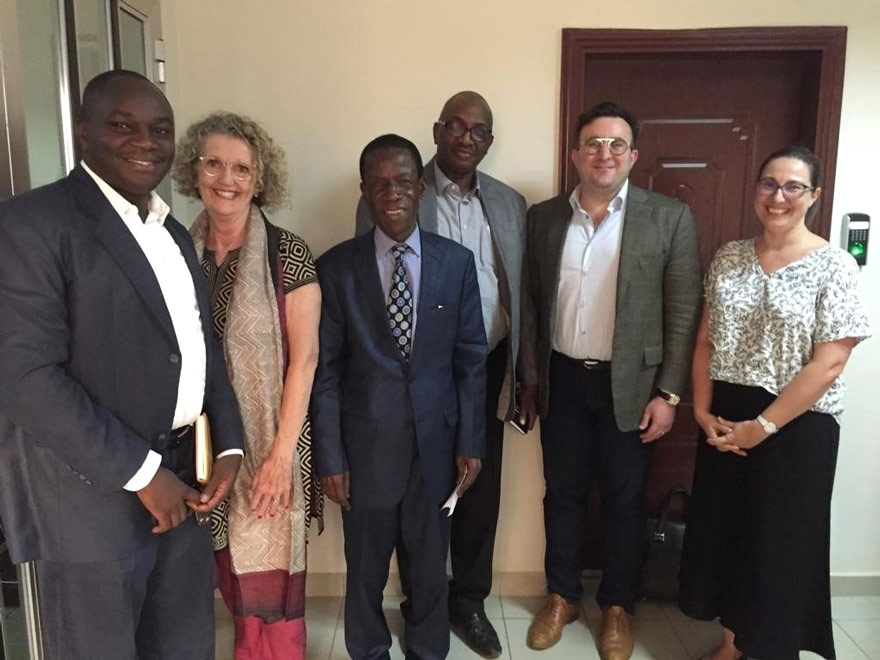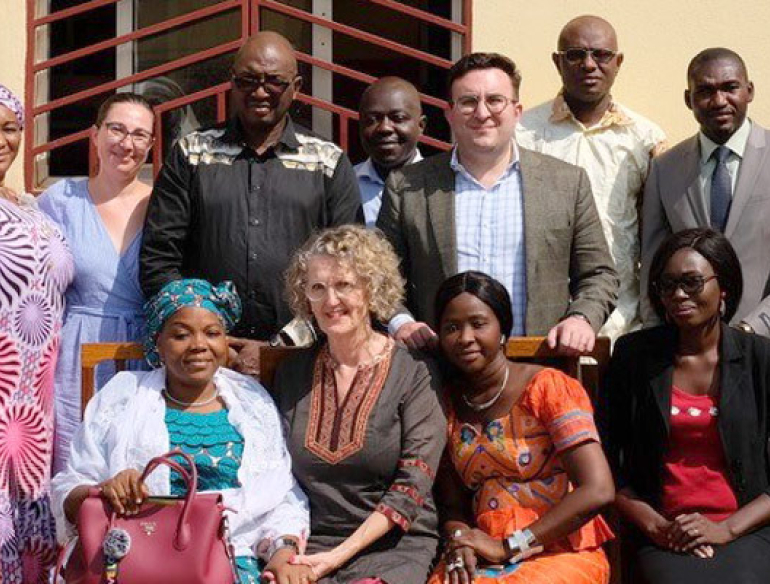A team from the Therapeutic and Vaccine Research Program (TVRP) at the Kirby Institute recently travelled to Conakry, Guinea in order to prepare to open an international randomised trial of simplified HIV second-line therapy at Donka National Hospital. Under the local leadership of Professor Mohamed Cissé, Director of the hospitals’ HIV program, the Kirby team behind the project included Mark Polizzotto (Program Head), Dr Emmanuelle Papot (Senior Research Fellow) and Simone Jacoby and Cate Carey (Senior Clinical Project Coordinators).
Emmanuelle has had a long connection with the country and led the preparations with Cate. She is passionate about the project and the long-term benefits of the relationship between Donka National Hospital and the Kirby Institute.
“TVRP is delighted to welcome Prof Cissé’s team in the D²EFT network. Their Dermatology and Venereology department is the reference centre in Guinea for the care of persons living with HIV. With the support of National and International agencies, this very dedicated team has succeeded to overstep the many challenges of their setting to build an amazing comprehensive and accessible organisation for the management of HIV-infected patients,” says Emmanuelle, “The Clinical academics in their team have always tried to provide international and local scientific background to optimise the national guidelines for the care of people living with HIV. D²EFT will help inform policy for their patients failing a first treatment with hopefully effective, better tolerated and easier regimen option. We are all looking forward to developing other research projects with them, along with PREGUI, around HIV-infection and co-morbidities which would help strengthening their skills in clinical trials, training new researchers and of course improving the care of their patients by promoting strong scientific evidence.”
When the D²EFT (Dolutegravir and Darunavir Evaluation in adults Failing Therapy) opens in March, the team believes it will be first randomised controlled trial ever done in the Guinean health care system. Our partners in Guinea are delighted at this achievement and very committed to building a long-term partnership with UNSW.
The challenge of the project looks beyond the first-line antiretroviral regimens that are safe, effective and easily administered (one pill taken once daily). The annual failure rate is around 10–15% of treated patients. Second-line regimens have limitations, disproportionately impacting resource-limited settings like Guinea.
The trial will establish if a simple, novel combination of antiretroviral drugs (dolutegravir and ritonavir boosted darunavir) is as safe and effective as the currently recommended World Health Organisation standard of care (SOC) second-line regimens.
The over-arching goal of the D²EFT project is to provide the highest standard of evidence that will inform applicable treatment guidelines for second-line HIV therapy in resource-limited settings. It will either provide further validation for current recommendations or offer an alternate approach. If the latter, the team would anticipate that the resulting recommendations would be implemented through the responsible agencies within defined geographical areas or countries like Guinea. By incorporating diversity in the trial design, the team will ensure the results are broadly applicable and generalisable to a similarly diverse set of clinical situations, making findings directly translatable into the treatment of millions of people in resource-limited settings.
This initiative is part of a broader capacity development partnership the Kirby Institute has with the National Institute of Allergy and Infectious Diseases. It supports their efforts to build research and clinical capacity in the region. In the wake of Ebola, the Partnership of Clinical Research in Guinea (PREGUI) was established between the Ministry of Health of Guinea and the NIAID, United States.
Republished with permission. Written by Christina Kingen, Division of External Relations, UNSW and and Emmanuelle Papot, Kirby Institute.
